
We're continuing the CURE Recipe Swap by sharing reader Susan D.’s Chocolate Tofu Pudding. This four-ingredient dessert is not just a creamy treat but is also a good source of protein thanks to the inclusion of tofu.

We're continuing the CURE Recipe Swap by sharing reader Susan D.’s Chocolate Tofu Pudding. This four-ingredient dessert is not just a creamy treat but is also a good source of protein thanks to the inclusion of tofu.

We're kicking off the CURE Recipe Swap with reader Tricia K.’s recipe for Shiitake Mushrooms and Kale Over Smashed White Beans, a hearty meatless meal that’s packed with flavor and nutrients.

Get a sneak peek at what’s inside our Winter 2020 issue of Heal Magazine.

Here are the top five CURE® stories for February 2020.
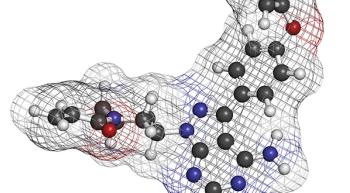
Patients with relapsed/refractory mantle cell lymphoma saw more favorable responses with the BTK inhibitor Imbruvica (ibrutinib) than with chemotherapy, according to nearly a decade of data.
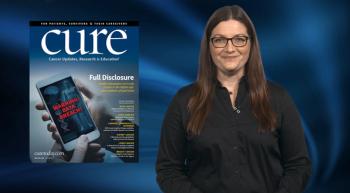
Here’s a look at what’s inside our 2020 Winter issue.

Treatments for renal cell carcinoma are showing effectiveness in the short term, but with the help of new trials, researchers are looking to expand their impact for long term treatment.

In this week’s episode of the “CURE Talks Cancer” podcast, we spoke with Lainie Jones, who has found her purpose in helping others after being diagnosed with five separate primary cancers before the age of 35 because of a rare genetic condition that predisposes her to develop the disease.

We asked our audience about the impact social media has had on their cancer journey, here's what they had to say.

Take a look back at the top five CURE® stories for January 2020.

Save the date! We invite you to join CURE for our next monthly #CureConnect Tweet Chat on Wednesday, January 29, at 1 p.m. EST, when we plan on discussing cancer survivorship.

A Cancer diagnosis is a life-changing event for any person, and stress is natural, so we had the chance to see how other patients with cancer have dealt with their diagnosis and its accompanying stress.

Life with cancer is filled with ups and downs, but how do you deal with the roadblocks that are placed in your way? We recently asked CURE®’s social media audience how they coped with setbacks in their cancer journey. Here are some of their responses.

The three-drug combination of Perjeta and Herceptin with Gemzar shows improved progression-free survival in patients with metastatic breast cancer to advance to a phase 3 trial.

Personalized treatments have changed the cancer landscape, and continue to change it for patients with renal cell carcinoma.

A recent study has found that real acupuncture can not only reduce a patient's cancer pain from various types of cancer, but also reduce their painkiller use.

As 2019 comes to a close, take a read through CURE®’s top stories of the year.

Take a look back at the top 10 podcasts of 2019 – and be sure to subscribe so you don’t miss an episode in 2020.

However, the recent addition of new chemotherapy-free options such as chimeric antigen receptor (CAR)-T cell therapy could offer hope for patients with mantle cell lymphoma who develop resistance to chemotherapy-based treatment.
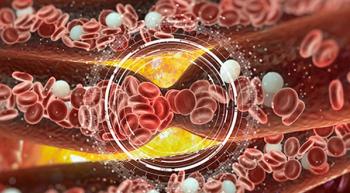
While chemotherapy is widely used in the frontline treatment of mantle cell lymphoma (MCL), earlier use of BTK inhibitors such as Imbruvica (ibrutinib) may soon make chemotherapy obsolete for some patients, according to new data presented at the 2019 American Society of Hematology (ASH) Annual Meeting.

Expanding a combination from two drugs to three may lengthen the time until disease progression for patients with relapsed or refractory multiple myeloma.

Here is a list of clinical trials that are currently happening within the cervical cancer space.
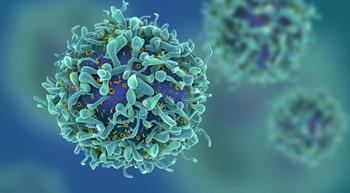
Some patients with non-Hodgkin lymphoma may soon have a treatment option that could offer complete remission, according to new data presented at the American Society of Hematology 2019 Annual Meeting.
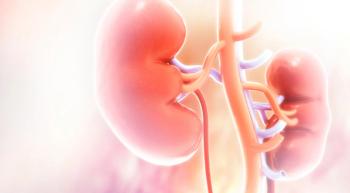
Here is a list of clinical trials that are currently happening within the kidney cancer space.

In cancer clinical trials, the goal, or primary endpoint, is often focused on overall survival. However, one expert from the Dana Farber Cancer Institute thinks treatment-free survival should also be documented to provide patients with the data they need to make informed treatment choices.

Here are the top five CURE® stories for November 2019.

Although one in nine men will receive a prostate cancer diagnosis in his lifetime, cutting-edge research has allowed more men to live longer or even be cured.

Here’s a look at what’s inside our November 2019 Lung Cancer special issue.

Here is a list of clinical trials that are currently happening within the mesothelioma space.

In partnership with the Australian Therapeutic Goods Administration (TGA) and Health Canada, the Food and Drug Administration (FDA) has granted supplemental approval to Calquence (acalabrutinib) for the treatment of adults with chronic lymphocytic leukemia (CLL) or small lymphocytic lymphoma (SLL).